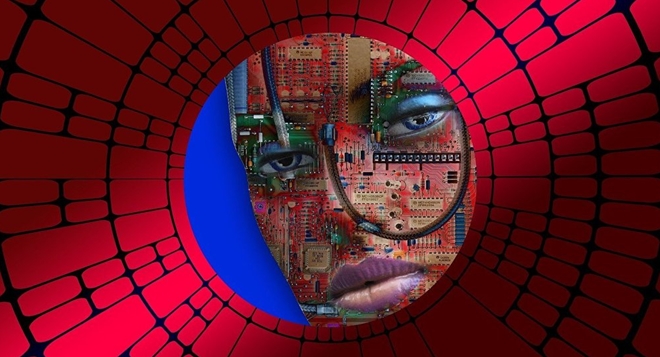'Robo-Hitler' Alarm: Musk's Fear of AI 'Immortal Dictator' Sets Twitter Ablaze
The tech billionaire and acknowledged visionary stirred Twitter as he predicted a potentially dark future with computers smart enough to suppress humankind in a film dedicated to the perils of artificial intelligence.
- NASA develops outer space submarine to explore saturn
- NASA successfully tests landing parachute for next generation Mars probe
- Asteroids Photobomb NASA's Hubble Telescope Images of Distant Galaxies
The Tesla and SpaceX founder, Elon Musk, shared his fears over the dangers that the development of artificial intelligence can bring. The visionary, who already named the "competition for AI superiority at the national level as the most likely cause of WW3," suggested humankind can create “an immortal dictator from which we would never escape," which, unlike Mussolini and Hitler, can’t die. According to him, such an entity “doesn’t have to be evil to destroy humanity.”
His revelation was presented in a new documentary “Do You Trust This Computer?” from director Chris Paine, who incidentally made 2006's “Who Killed The Electric Car?.” The film is about the promises and perils of the new era of self-learning computers and the “tsunami of apps, personal assistants, smart devices, and targeted advertisements” that come with this technology.
 |
| Photo: CC0 |
Musk, who happens to be a co-founder of the Neuralink startup was so eager to promote the computer-skeptical film that he's paying to have it streamed online for free this weekend.
"It's a very important subject. It's going to affect our lives in ways we can't even imagine right now," Musk said at the film premiere according to Mashable.
A reference to Frankenstein couldn’t be avoided, as Musk quoted Mary Shelly’s novel on his Twitter account after he advertised the documentary.
The documentary, and Musk’s remarks in particular, triggered storm of thousands of comments, as AI-sceptics and optimistic futurists debated Musk’s prediction.
Some were not convinced with his arguments and shamed him for his alarmist remarks about the “rise of machines.”
Elon Musk dedicated his piece to another prominent AI-sceptic, Stephen Hawking. The prominent scientist, who died in March, repeatedly voiced concerns over improving AI. ” I fear that AI may replace humans altogether," Stephen Hawking said in an interview with Wired magazine.
He explained that people who specialize in computer viruses may one day come up with a computer program able to function on its own, without human assistance. It would "improve and replicate itself" until it becomes AI, a "new form of life that outperforms humans."

